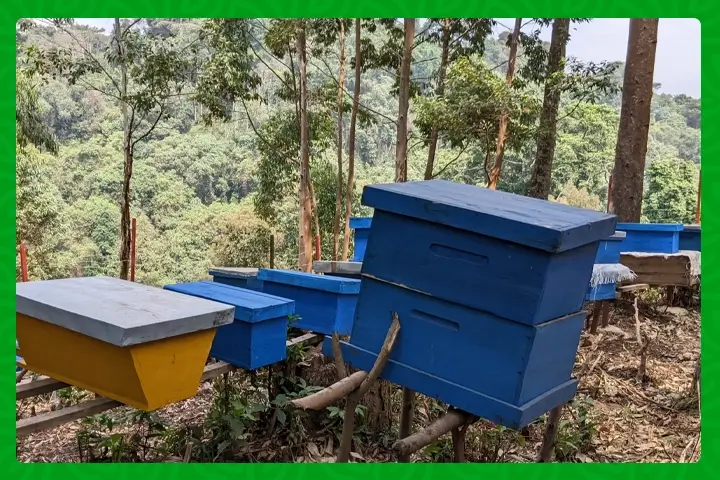
In response to a concerning national decline in honey production, the Rwanda Agriculture and Animal Resources Development Board (RAB) is advocating for a shift towards bee-friendly farming practices. Currently standing at just 10% of the total production capacity, the decline in honey production is particularly evident in regions like Rutsiro and Rubavu districts in the Western Province, where climate change has significantly impacted bee farming.
Climate Challenges Affecting Bee Farming
Heavy rainfall in the affected areas is identified as a major factor contributing to the decline in honey production. According to Marie Chantal Nyirakamineza, Director of Rutsiro Honey Ltd, the annual production of the factory is far below its capacity, currently standing at 35-40 tonnes against the potential of 180 tonnes. Factors such as inappropriate bee feeding during the rainy season, the use of pesticides, and premature tree-cutting before flowering are cited as key challenges by beekeepers like Emilienne Mukasine.
RAB Takes Action to Overcome Barriers
Willy Mwiza, the Apiculture and Commercial Insects Senior Research Coordinator at RAB, acknowledges the challenges faced by the sector but assures that measures are being considered to overcome these barriers. The focus is on fostering collaboration for bee-friendly farming, promoting information exchange between beekeepers and farmers. Recommendations include the judicious use of pesticides before flowering season, evening applications when bees are in their hives, and the adoption of organic pesticides.
Relocating Bee Hives and Embracing Collaborative Farming
Mwiza advocates for the relocation of bee hives to natural or planted forests away from crop production areas. This approach is already being implemented in Rutsiro and Ngororero districts, where cooperatives comprising 200-300 members are strategically placing hives on the outskirts of Gishwati-Mukura Biosphere Reserve. The objective is to provide bees with ample food from the natural forest, ensuring a conducive environment for honey production.
Anticipated Impact and Future Prospects
Official figures from RAB indicate that the current national honey production is at 6,000 metric tonnes, whereas the demand stands at approximately 17,000 metric tonnes. With around 120,000 beekeepers across the country, the call for bee-friendly farming practices is not just a solution to the immediate challenges faced by the sector but a strategic move towards sustainable honey production. By embracing collaborative and eco-friendly initiatives, Rwanda aims to not only meet its domestic demand but also emerge as a leading advocate for bee-friendly farming practices amidst the challenges posed by climate change.
Original Article written by Germain Nsanzimana


















